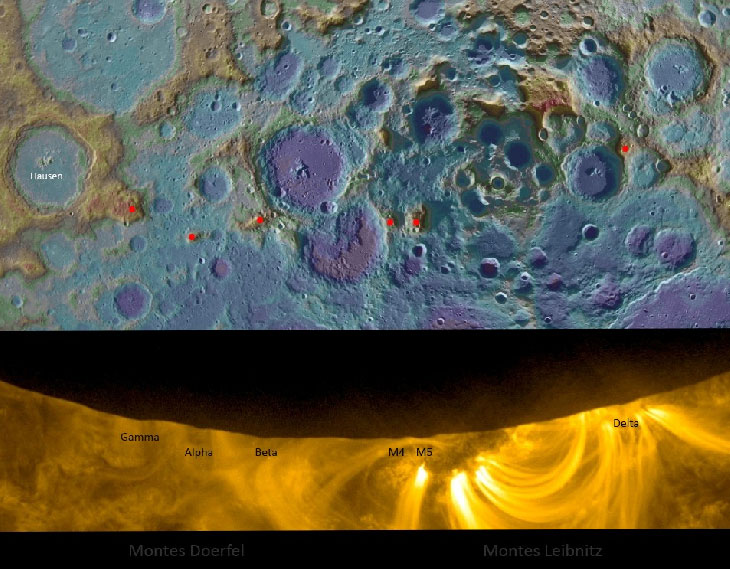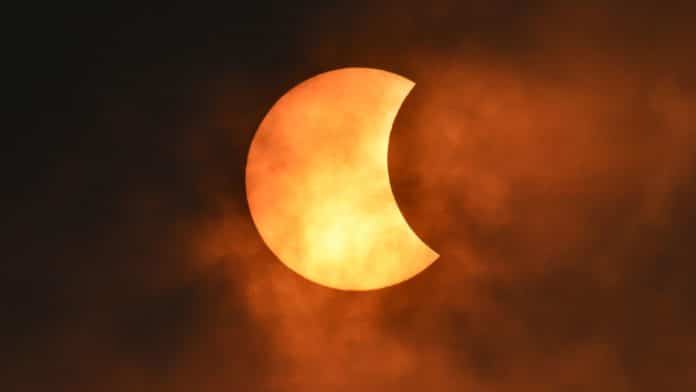NASA’s Solar Dynamics Observatory (SDO) often views the sun as the primary contributor to space weather or radiation that impacts Earth. Recently, it recorded an eclipse of the sun in space.
On June 29, the Moon passes in front of the sun, producing a partial solar eclipse. During the 35-minute event, the Moon covered 67% of the sun, and lunar mountains were backlit by solar fire.
As reported on spaceweather.com, Patricio Leon of Santiago, Chile, took a closer look at the mountains and identified them. They are part of the Leibnitz and Doerfel mountain ranges near the Moon’s south pole:

Leon said, “The top panel is a topography map from the Lunar Reconnaissance Orbiter (LRO). Each red dot in the LRO map is named in the eclipse image below it.”
